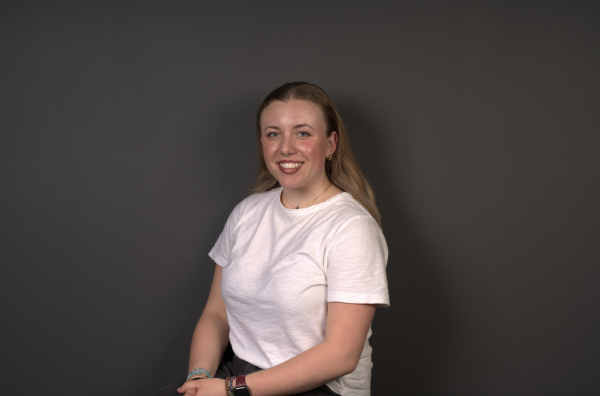Engage with feminism
March 15, 2023
To kick off women’s history month, UW Oshkosh hosted a panel called “I <3 feminist research.”
The panel highlighted women at UWO who are currently pursuing feminist research with the goal of giving students a better idea of what feminist research looks like.
The four panelists came from different educational and racial backgrounds, each with their own unique research focus.
Dr. Ula Klein, the director of the women’s and gender studies program, helped to organize the panel and served as a moderator during.
Klein pursued her PhD in 18th century British literature specifically looking into representations of gender and sexuality in primarily fictional works.
Along with her PhD she obtained a graduate certificate in women’s gender studies to help supplement the work she was doing in her literary studies.
Klein continues to work on expanding the narrative of what history is and what it actually looks like.
“I think the biggest reason [we need a women’s history month] is because most people think of history being about men and men’s achievements,” Klein said. “A lot of people think of history as dates, battles, kinds, wars and discoveries. And because of the gender inequities in the past, a lot of that stuff was done by men.”
Women’s history month comes out of the second wave feminist movement of the 1960’s and 70’s.
“The women’s movement is there to say hey there were a lot of women who achieved a lot of amazing things and who were actually well known even in their own time period,” Klein said.
Klein emphasized that women’s history is often the history of the home and labor. Through women like the ones highlighted during the panel, that master narrative is changing.
Klein expressed concern for the women on campus due to lack of leadership and underfunding.
“We lost our director of the women’s center, Dr. Alicia Johnson,” Klein said. “She left the university in December and there has been no call to hire anyone to replace her.”
Klein said Maddie Wiles, the inclusivity director of Reeve, has been made the replacement for the time being.
“[Wiles] was made the interim director of the LGBT resources center after Dr. [Liz] Canon retired,” Klein said. “But now that Dr. Johnson left… Maddie is the interim director of both. One person cannot do the job of three.”
Klein said Wiles and Eliza Farrow, another women’s center employee, are doing everything they can but they aren’t getting the support they need.
The women’s and gender studies program and UWO has only done one event as part of women’s history month in the past but Klein wanted to try doing a series of events to help the women’s center with their workload.
“It’s especially frustrating when the conversation is about recruitment and retention,” Klein said. “The women’s center and the LGBTQ resource center do so much work to help retain students.”
Klein said there are almost no men currently taking intro to womens and gender studies and rarely any who voluntarily come to events at the women’s center or LBGTQ resource center.
“They’re not putting themselves in the places that would teach them those [advocacy] skills,” Klein said. “It’s always been a question to me. I don’t know how you reach people who aren’t reaching out.”
“You can’t just wait for it to come to you and you can’t ask the oppressed group to educate you, that’s not fair either,” Klein said. “Put yourself in the position of becoming a student of feminism.”
Klein teaches that feminism is for everybody.
“It’s about dismantling the power structures that are making all of our lives worse.”















